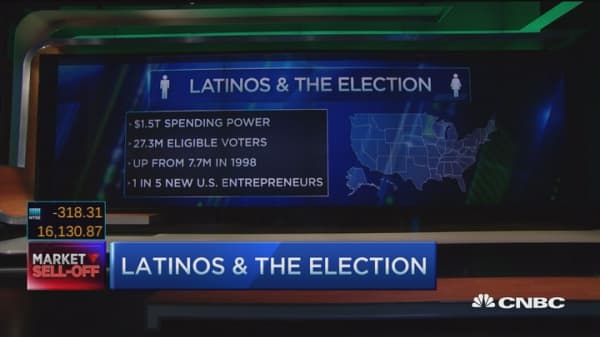Economic uncertainty and our unsettled politics lead the news today, but the most consequential business story is the one not told. It is the good news story of a group of Americans – Latinos – who have been quietly and increasingly powering U.S. economic growth, both as job creators and as consumers. As the U.S. population ages, and as we struggle against the headwinds of an anemic global economy, U.S. Latinos are forming the core of America's New Mainstream Economy. A handful of simple facts tell the story.
First, U.S. Latino buying power is huge, and rising fast. We already enjoy $1.5 trillion in annual purchasing power. That number has been growing much more quickly than the purchasing power of the general U.S. population – 70 percent more quickly over the last 25 years.






